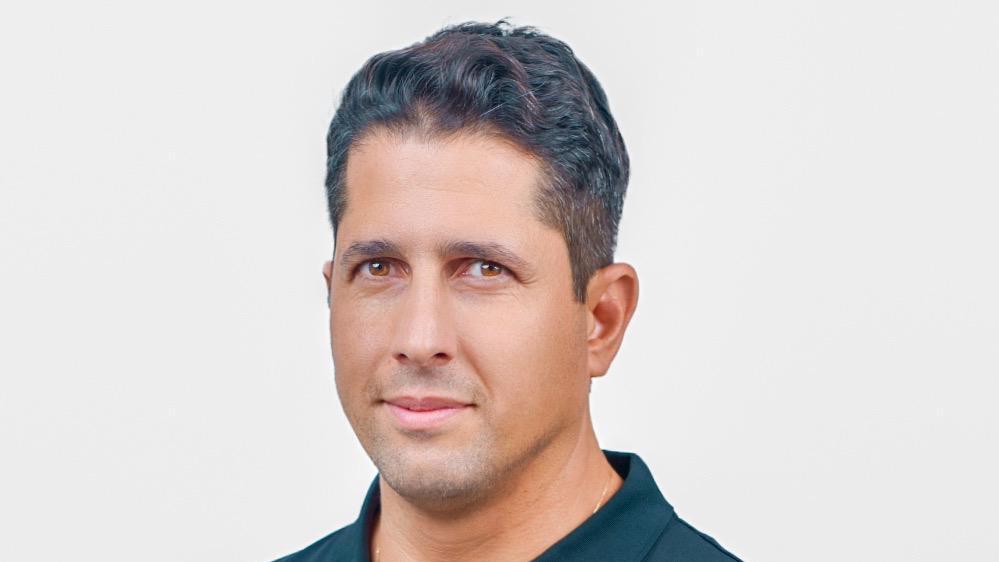
2025 VC Survey
“Israelis are trained in working and managing their businesses under extreme conditions”
Merlin Ventures Managing Partner Shay Michel joined CTech to share insights on the months ahead as part of its 2025 VC Survey.
“Israelis in general, and specifically the Israeli high-tech industry, are trained in working and managing their businesses under extreme conditions,” said Shay Michel, Managing Partner at Merlin Ventures. “We saw the same kind of growth during COVID-19 when everyone was sent to work from home, sales teams couldn’t meet their customer F2F (only via Zoom), and yet the high-tech industry was doing just great.”
Michel joined CTech for its 2025 VC Survey to discuss the state of the economy and what Startup Nation can expect in the months ahead.
“It may be a cliché, but for the high-tech industry, every challenge is truly an opportunity for innovation,” he added. “Hopefully, this year too, we have taken the good part of the complex situation and are better prepared for the near future.”
You can read the entire interview below.
Fund ID
Name of fund/funds: Merlin Ventures
Total sum of the fund: $50M
Partners: Shay Michel, Seth Spergel
Notable/select portfolio companies (active): 10 + 2 Stealth
Notable exits: 6
2024 is almost over. How can you summarize it in terms of the Israeli high-tech industry?
The high-tech industry has been the engine of growth of the Israeli economy for the past decade.
Although our country is at war in 2024 and dealing with surrounding geopolitical challenges, we are witnessing a market that continues to grow, evolve, and expand steadily.
I believe that one of the reasons is that Israelis in general, and specifically the Israeli high-tech industry, are trained in working and managing their businesses under extreme conditions, we saw the same kind of growth during COVID-19 when everyone was sent to work from home, sales teams couldn’t meet their customer F2F (only via Zoom), and yet the high-tech industry was doing just great.
At the same time, it is important to note that during the year, many employees from the industry were on long-term reserve duty, which certainly affected product development processes or HR recruitment processes for the industry.
It may be a cliché, but for the high-tech industry, every challenge is truly an opportunity for innovation. Hopefully, this year too, we have taken the good part of the complex situation and are better prepared for the near future.
Looking ahead to 2025 - What challenges and opportunities await the Israeli high-tech sector in the coming year, and how are you, as investors, preparing for them?
Opportunities:
The name of the game is fast, cheap, and easy - and that means AI-enabled solutions. AI is the fifth industrial revolution, and we expect a gold rush in this field with significant advancements and developments. That means looking for solutions driven by AI and finding the “picks and shovels” that enable that AI gold rush. Our preparation involves connecting with more entrepreneurs in the AI space while, as a fund, continuing to grow and deepen our understanding of this transformative sector.
Challenges:
The political situation in Israel assumes that the war will end soon.
Hopefully, we will not return to the internal dispute over changes to the Israeli legal system (it doesn't matter if you are for or against it), the very fact that it is being brought up for public debate and there are demonstrations in the street, is discouraging foreign countries and investors from making investments in Israel due to concerns about instability of the Israeli legal system.
How will new American leadership affect the global high-tech industry or economy? And where does this place Israel and its entrepreneurs?
From the moment the new leadership was announced, we’ve seen the Israeli Shekel strengthen, and the geopolitical situation change in weeks, with it changing every day. There’s an interesting dialogue and anticipation of change, and we hope it will lead to positive outcomes. We’re eager to see how this unfolds.
It has been positively influencing the economy and positioning Israel and its entrepreneurs in the global market, especially with its strong connection to the U.S., which has been and will continue to be a key partner in the years to come. There is anticipation of changes the government can make that will have impactful and positive changes on the tech market.
What are the three most important things the Israeli government should do today to accelerate the high-tech engine in the coming year?
The three things the government should focus on:
- Education about AI and its implications.
- Building technology hubs with everything needed to support Israel’s sprint in the AI race.
- Providing incentives for the high-tech industry and foreign investment funds.
Is Israel missing out on the AI revolution in the global arms race? If not, what should the local industry focus on to join the global race?
Israel entered the artificial intelligence market back when it was still called machine learning (ML). While there weren’t significant developments at the time, the country definitely recognized its potential. Today, even though we are leveraging AI advances throughout the tech industry, we are slightly delayed when it comes to fundamental research. However, there’s a strong Israeli coalition that is pushing aggressively in this field, and we expect to see great innovations emerging from it.
To support and scale quickly in the AI field, Israel will need to shift towards alternative electricity and renewable energy sources. AI requires a significant amount of electricity, far more than past computational requirements. The energy and power that has sustained us in the past 100 years is not the energy that will be used in the next 100 years.
Could the global IPO drought end in the coming year?
There are a lot of variants that impact the IPO market. With a new government entering the White House at the beginning of 2025, we will see changes in the US economy and stock markets. High-growth tech companies that were preparing to go public in 2022 — before the stock market correction — have since spent three years managing costs and expanding their businesses.
There has been a shift back to prioritizing growth, which is undoubtedly beneficial for the tech sector and the IPO segment.
I hope to see it in 2025, but it’s more likely that IPOs will pick up around 2026. There are a few companies I’d like to see go public, and I’m eagerly waiting for that.
From an investor's perspective: will the coming year be better for early-stage startups or more mature companies?
It depends on the metric you want to examine. The upcoming year is expected to be more favorable for entrepreneurs looking to raise seed investments for establishing startups. However, I anticipate that the process of selling the product will be challenging for them. On the other hand, companies in advanced stages, which already have a customer base and additional products, will find things relatively easier. However, I predict that raising capital in later funding rounds will be more challenging, particularly in terms of the valuations that funds will agree to.
As always, there are opportunities for both early-stage startups and more mature companies. There’s enough room for everyone.
How many investments did you make in 2024, and how does it compare to previous years?
In 2024, we made approximately three deals, which was a little below average for us. Our average is typically around 4-5 deals per year.
Provide an example of an intriguing investment you made in 2024. What sets this company apart, or what is distinctive about its sector?
We invest in cybersecurity and have made investments in a few intriguing areas that we believe will transform the cybersecurity landscape. However, these technologies are still in their infancy. Once they mature, we fully anticipate a significant shift in the cybersecurity category.
Two notable companies that you think will thrive in 2025. These can be from your portfolio or not.
Company Name: Clutch
Sector + description of the product/service: Clutch is the industry’s first Universal Non-Human Identity (NHI) Security Platform, built for the enterprise. It offers complete visibility, governance over lifecycle management, effective posture and risk management, real-time detection and response, and proactive Zero Trust protection for all NHIs across the entire enterprise landscape, including Cloud, SaaS, and On-Prem.
Investment amount + total: $8m total
Founding Year: 2023
Reasoning why this is their year: With the rise of artificial intelligence, we will see a shift in how an employee is defined within an organization.
Company Name: Cyclops
Sector + description of the product/service: Cyclops integrates with your existing security tools using a Cybersecurity Mesh Architecture (CSMA) approach to gather metadata on threats, vulnerabilities, cloud instances, SaaS apps, and more. It then enriches this data with context and insights by correlating entities across all of those different products. By providing this contextualized approach to risk validation, Cyclops’ cybersecurity mesh product helps you make intelligent decisions and focus on what really matters.
Investment amount + total: $6.4M total
Founding Year: 2022
Reasoning why this is their year: Because AI is bringing with it massive amounts of both threats and opportunities and providing context and distilling down what matters from that massive amount of data will be even more necessary if we are to deal with cybersecurity needs on an AI scale.














